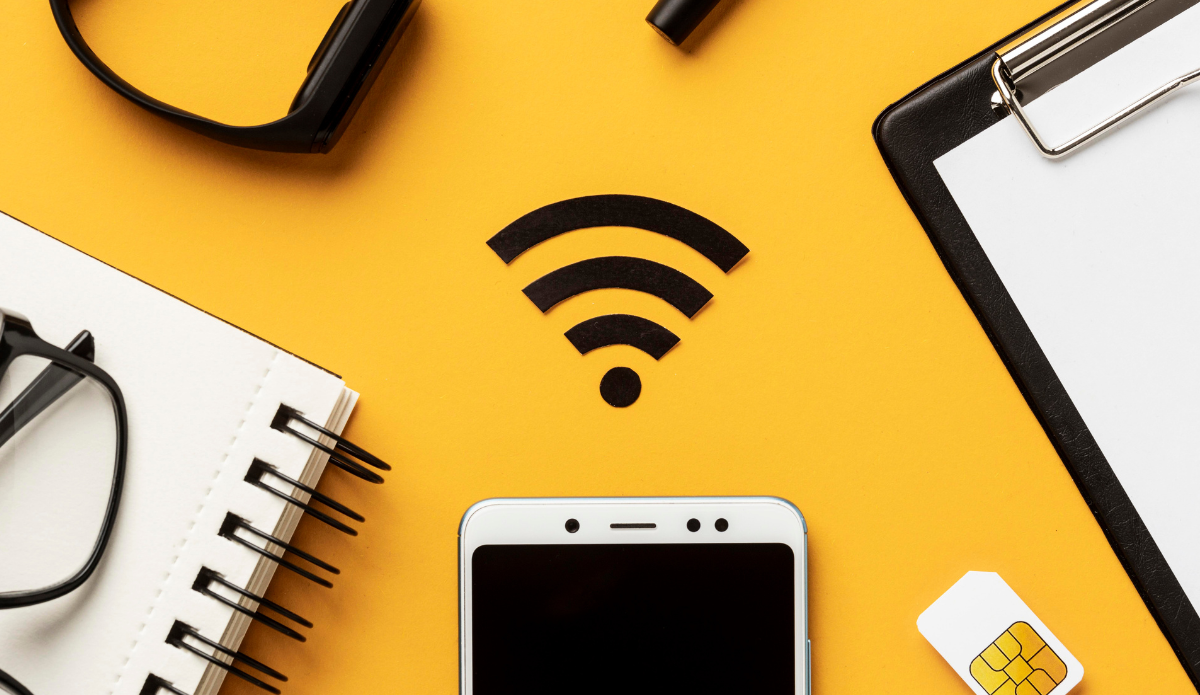Ready to Part With Your Landline?
In recent years, the traditional landline phone, once a household staple, has faced a steady decline in usage across the UK.
The average household now uses their landline phone for as little as 35 minutes per week. This has dropped considerably in the last two years – by almost a quarter!
With the emergence of advanced technology and the rapid expansion of broadband networks, the era of landline phones is approaching its twilight. However, this isn’t a change to be feared – it’s one for us all to embrace.
A Lightning-Fast Future is Coming
The UK’s major broadband providers have set their sights on a transformative journey, signalling substantial changes post-2025 that could shape the future of telecommunications for good.
The narrative of landline phones losing their prominence in UK households has been gradually unfolding. We’ve all slowly become more mobile-focused, especially in the last 10 years.
There are now as many as 111.8 million mobile phone subscriptions across the UK. No one needs to stay tethered to their landline cord or get wrapped up in knots trying to pace the room when we have the flexibility of mobile phones.
Why Has Landline Phone Use Declined?
Aside from the rise in mobile, what else has knocked landline phones off the top spot?
- Technological advancements: High-speed internet and the availability of Voice over Internet Protocol (VoIP) services have become much more enhanced and widely available.
- Demographic shifts: Younger generations tend to rely more on mobile and internet-based communication, which goes hand in hand with our previous point mentioned above.
- Cost-effectiveness: Landline phone services are often perceived as less cost-effective compared to bundled mobile or internet packages, especially nowadays.
Post-2025 Plans for Landline Phones
All major UK broadband providers are preparing for a significant shift in their offerings post-2025.
As part of a forward-looking strategy, these providers have already made some transformative plans.
The plans include:
Phasing Out Traditional Landline Services
Broadband giants are gradually phasing-out conventional phone services. One way that they are doing this is by subtly encouraging customers to switch from ADSL to full fibre.
Enhanced VoIP Integration
Providers are poised to bolster their VoIP offerings, elevating them to primary communication solutions for households and businesses. This strategic shift aims to deliver feature-rich, reliable, and cost-effective voice services over broadband connections.
Investment in Broadband Infrastructure
Anticipating the increased demand for robust broadband connectivity, providers are working hard to expand and enhance broadband infrastructure. This includes bringing full fibre connections to as much of the UK as possible and improving VoIP capabilities.
Will I Lose Access to my Landline Phone?
Despite the race to implement speedy VoIP technology officially being on, it won’t suddenly cut off your landline access – but that doesn’t mean it won’t happen eventually!
Say if for example, you took out a new broadband deal today, by the time you come to switch or renew, your landline phone will likely be redundant.
Any further broadband deals after this time will no longer be bundled with a landline phone and internet speeds needed for VoIP will ne promptly considered.
Are There Any Downfalls to Know About?
Recently, concerns were raised by MPs about how effective the nationwide transition to VoIP will be.
Vulnerable bill payers that still rely on their landline phone will face the biggest loss, especially during bouts of extreme weather.
This is because internet connections can be affected by extreme weather, whereas in comparison, landlines are unfaltering.
Embracing the Landline Switch-Off
The impending ‘big switch off’ will significantly change the way consumers and businesses communicate.
In our opinion, it’s for the better, too!
We’ve outlined the main benefits of switching to VoIP below:
Cost Savings
VoIP call charges are significantly lower, especially for long-distance communication. To put it into perspective, landline calls can cost up to 20p per minute, whereas VoIP calls only cost 1.5p per minute.
Flexibility and Mobility
VoIP enables flexibility as calls can be made from any internet-connected device, allowing users to stay connected even while on the go. This flexibility is particularly beneficial for remote workers.
Advanced Features
VoIP systems often come with a range of advanced features such as voicemail-to-email transcription, call forwarding, conference calling and many more.
Scalability
One for business owners – the scalability of VoIP! Businesses are able to add or remove lines as needed without requiring significant infrastructure changes, making it adaptable and flexible.
Integration with Technology
VoIP integrates seamlessly with other technologies and software, enabling easier collaboration through video conferencing, instant messaging, and file sharing.
Enhanced Accessibility
VoIP systems can offer accessibility features which cater to diverse user needs, including options for individuals with disabilities.
Geographical Flexibility: Another one for the business owners! With VoIP, businesses can have phone numbers from different area codes, providing a local presence in multiple regions without physical office locations or hefty calling charges.
Say Goodbye to Landline and Switch to VoIP
The shift away from landline phones signifies a transformative moment in the UK’s communication landscape.
The time has come to bid farewell to the landline phone and embrace a future where robust broadband connections pave the way for an interconnected world.
Switch Experts is committed to keeping you informed about the evolving trends in communication and technology. Stay connected for more updates and insights.
You can also get a head start by searching for the best prices on the latest broadband deals in your area.


